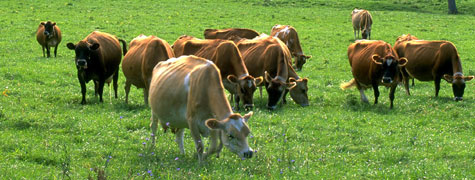Values-Based Food Supply Chain Case Study: Organic Valley

In 1988, a small group of organic vegetable growers in Wisconsin formed a cooperative to provide stable and fair prices to its members. With the addition of dairy farmer members and an explosion of consumer interest in organic dairy products, the dairy segment of the co-op grew rapidly. It evolved into Organic Valley, the largest organic, farmer-owned cooperative in North America. As of 2011, Organic Valley has over 1,600 total members in 34 states and the Canadian province of Ontario and more than $600 million in gross sales.
Beyond providing economic stability to its members, Organic Valley seeks to achieve ambitious goals regarding ecological and economic sustainability, diversity, energy conservation, food quality and advancement of cooperative principles.
Organic Valley case study (PDF)
Organic Valley Research Brief (PDF)
These publications are part of a series of case studies and Research Briefs examining values-based food supply chains—strategic business alliances formed between primarily midsize farms/ranches and their supply chain partners. Values-based food supply chains distribute significant volumes of high-quality, differentiated food products and share the rewards equitably. Farmers and ranchers function as strategic partners rather than easily replaced input suppliers. All participants in these business alliances recognize that creating maximum value for the product depends on significant interdependence, collaboration and mutual support. These supply chains attach importance to both the values embedded in the production of the food products AND the values that characterize the business relationships.

